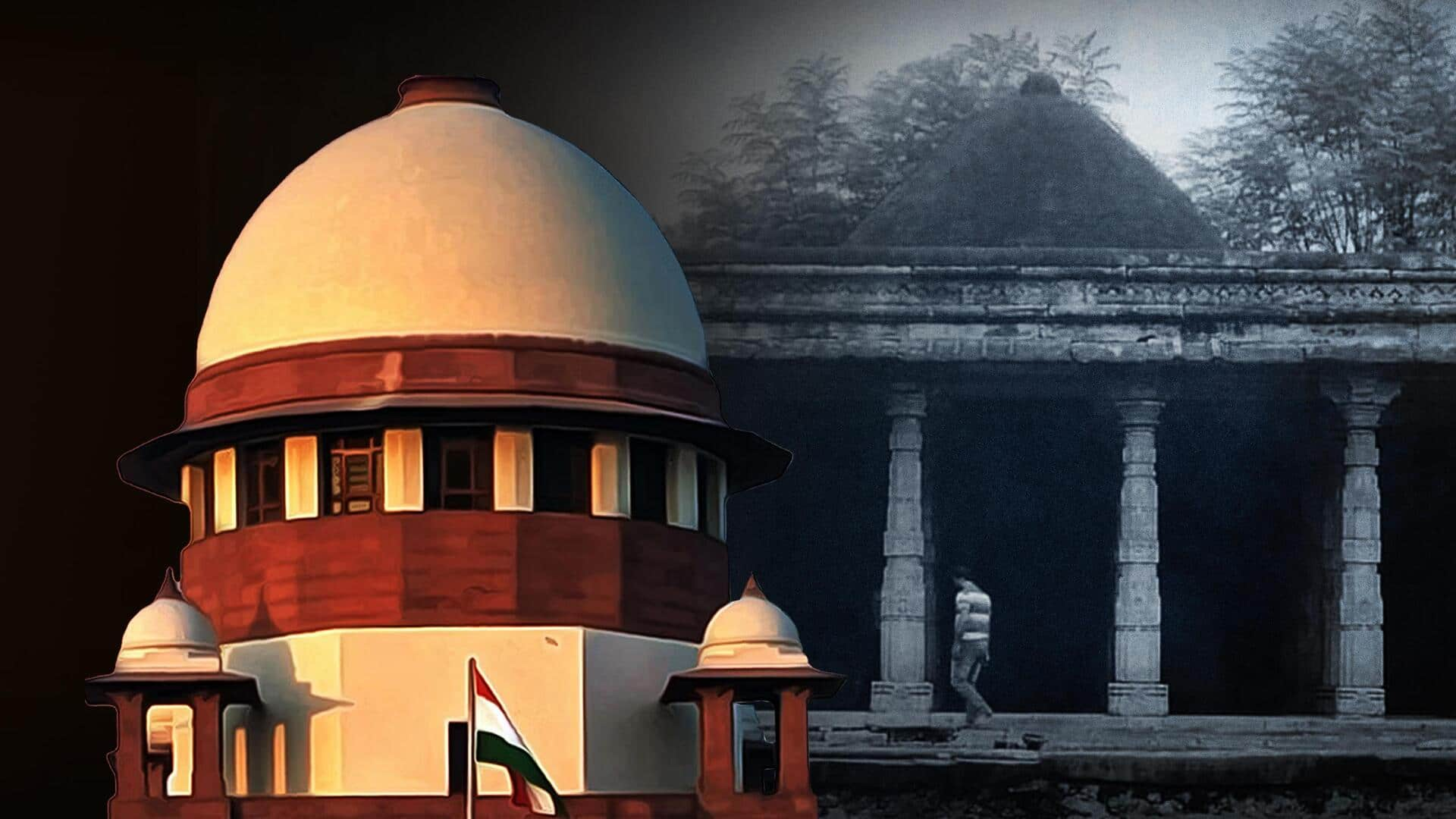
SC allows ongoing survey of Bhojshala Complex in MP's Dhar
What's the story
The Supreme Court pn Monday authorized a "scientific survey" of the Bhojshala complex in Madhya Pradesh's Dhar district. The site, under the protection of the Archaeological Survey of India, is a point of dispute between Hindus and the Muslims, both claiming ownership. "Issue notice returnable in four weeks. In the interim, no action should be taken without the leave of this court," stated a bench comprising Justices Hrishikesh Roy and PK Mishra.
Context
Why does this story matter?
The Madhya Pradesh High Court on March 11 instructed the ASI to perform a scientific examination of the Bhojshala complex. The court observed that the nature and character of the 11th-century structure needed to be "demystified and freed from the shackles of confusion." At present, the Bhojshala complex is considered a temple dedicated to Vagdevi (Goddess Saraswati) by Hindus, while the Muslim community refers to it as the Kamal Maula Mosque.
Survey conditions
Court sets conditions for Bhojshala Complex survey
The SC has set conditions for the survey of the Bhojshala complex, emphasizing that no physical excavation that could potentially alter the site's character should be conducted. This decision comes in response to a petition by Maulana Kamaluddin Welfare Society contesting a directive from MP high court calling for a scientific survey of the complex.
Worship continuity
Existing worship arrangements to remain unchanged
The SC's ruling ensures that the existing arrangement for religious practices at the Bhojshala complex will remain unchanged during and after the survey. According to an agreement set by the ASI on April 7, 2003, Hindus conduct pujas in Bhojshala on Tuesdays and Muslims perform namaz within the complex on Fridays. The court's decision aims to maintain peace and harmony among both communities while the scientific survey is conducted.
Archaeological survey
ASI's scientific survey
On March 22, the ASI began a scientific examination at the Bhojshala/Kamal Maula Mosque complex in Dhar district. The Hindu Front for Justice's Ashish Goel—the petitioner for the survey—mentioned that the court has instructed the utilization of cutting-edge technology, such as carbon dating. The ASI's scientific investigation will involve conducting a survey, excavation, GPR-GPS survey, and utilizing carbon dating methods to determine the age of different structures.